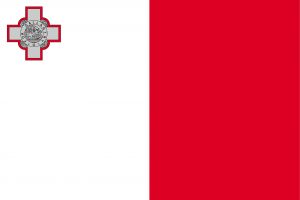Language/Maltese/Grammar/Questions
Hi Maltese learners! 😊
In this lesson, we will dive into the topic of questions in Maltese grammar. We will learn how to ask questions, answer them, and use the correct pronouns and syntax. We will also explore some cultural information and interesting facts about Malta. So, if you're ready, let's get started!
Questions with the Word "Kif"
One way to ask questions in Maltese is to use the word "kif," which means "how." Here are some examples:
| Maltese | Pronunciation | English |
|---|---|---|
| Kif int? | keef int? | How are you? |
| Kif hekk? | keef hekk? | How is that? |
| Kif taf? | keef taf? | How do you know? |
| Kif tista' tgħid dan? | keef tista taghid dan? | How can you say that? |
Notice that in Maltese, the subject pronoun is often omitted in questions. This is because the verb form indicates who the subject is. For example, "int" means "you" in the example "Kif int?" which means "How are you?"
In spoken Maltese, questions are often accompanied by an upward inflection of the voice, whereas statements have a downward inflection. Try to imitate the intonation to sound more natural when speaking Maltese.
Questions with Question Words
Another way to ask questions in Maltese is to use question words, such as "fejn" (where), "meta" (when), "liema" (which), "għand" (should/have), and "kemm" (how much). Here are some examples:
| Maltese | Pronunciation | English |
|---|---|---|
| Fejn inti? | fayne inti? | Where are you? |
| Meta tidħol? | meta tidhol? | When do you enter? |
| Liema kotba dejjem tagħżel? | liema kotba dayyem ta ghalzel? | Which books do you always choose? |
| Għandek xi mument liber? | an-dek shee moment leeber? | Do you have a free moment? |
| Kemm jiswa? | kemm yis-swa? | How much does it cost? |
Notice that "għandek" is a verb that means "you have." Therefore, "Għandek xi mument liber?" means "Do you have a free moment?"
Let's practice with a dialogue:
- Person 1: Fejn nista' nara s-sena tat-tfal? (Where can I see children's year?)
- Person 2: Tista' tara s-sena tat-tfal fil-bibljoteka publiku. (You can see children's year at the public library.)
Indirect Questions
Indirect questions in Maltese are often formed by using the particle "jekk" (if), as in:
- Jekk jogħġbok, agħtini pjacir ta' kliemek. (If you please, give me the pleasure of your word.)
This is a polite way to ask for someone's opinion or preference.
In addition, Maltese uses the particle "x'inhu" (what is it) to ask for clarification, as in:
- X'inhu dan? (What is that?)
When asking for an explanation, Maltese often uses the word "ħalli" (let) at the beginning of the sentence, as in:
- Ħalli ngħidulik, kif tista' tagħmel hekk? (Let me tell you, how can you do that?)
Interesting Facts about Malta
Malta is an archipelago in the central Mediterranean Sea, south of Sicily. It is the smallest country in the European Union by population and one of the smallest by area. Maltese and English are the official languages, but Italian is also widely spoken.
Many different cultures have shaped Malta throughout history, including the Phoenicians, Greeks, Romans, Arabs, knights of Saint John, French, and British. This has resulted in a unique mixture of architecture, language, and customs.
Malta has a rich cultural heritage, including the Megalithic Temples of Ħaġar Qim and Mnajdra, which are older than Stonehenge and the Pyramids. The capital city, Valletta, is a UNESCO World Heritage Site and a prime example of Baroque architecture.
If you want to practice your Maltese language skills, you can use Polyglot Club to find native speakers and ask them any questions. You can also check out the Maltese Grammar section for more helpful tips.
Sources
➡ If you have any questions, please ask them in the comments section below.
➡ Feel free to edit this wiki page if you think it can be improved. 😎
Related Lessons
- Past Participle in Maltese
- Negation
- Future Tense
- Pronouns
- Definite Articles in Maltese
- Indefinite Articles in Maltese
- Past Tense
- How to Use Be
- Imperative Mood
- How to Use Have

